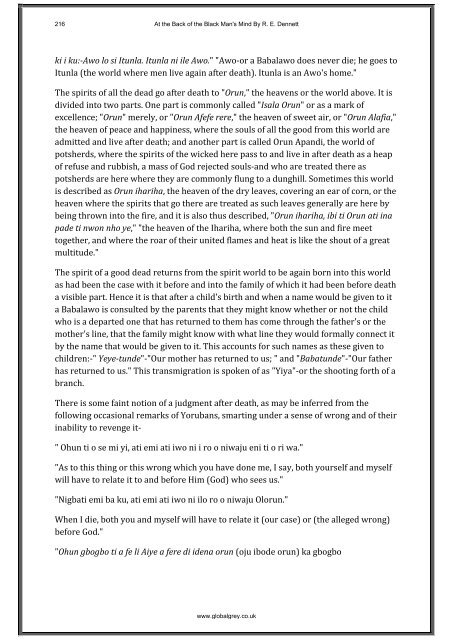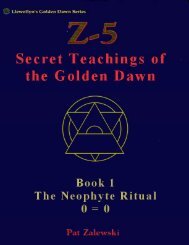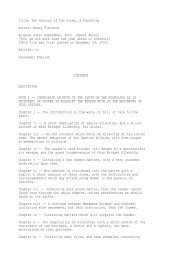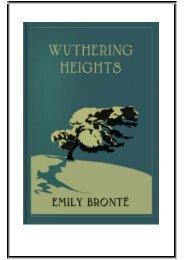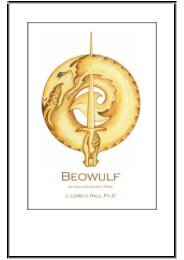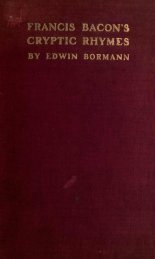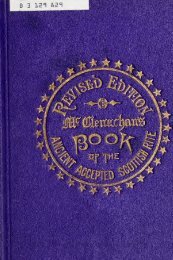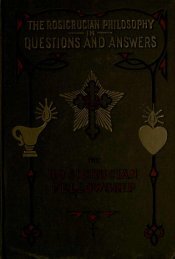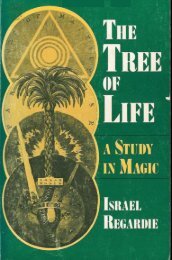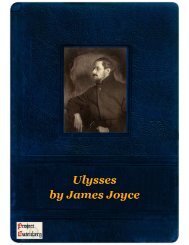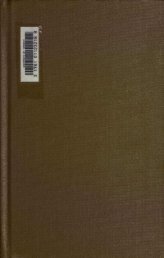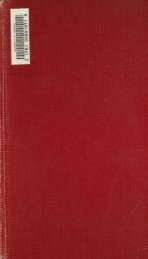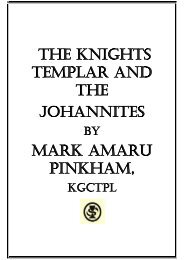Click to download PDF version: 3.87MB - Global Grey
Click to download PDF version: 3.87MB - Global Grey
Click to download PDF version: 3.87MB - Global Grey
You also want an ePaper? Increase the reach of your titles
YUMPU automatically turns print PDFs into web optimized ePapers that Google loves.
216 At the Back of the Black Man's Mind By R. E. Dennett<br />
ki i ku:-Awo lo si Itunla. Itunla ni ile Awo." "Awo-or a Babalawo does never die; he goes <strong>to</strong><br />
Itunla (the world where men live again after death). Itunla is an Awo's home."<br />
The spirits of all the dead go after death <strong>to</strong> "Orun," the heavens or the world above. It is<br />
divided in<strong>to</strong> two parts. One part is commonly called "Isala Orun" or as a mark of<br />
excellence; "Orun" merely, or "Orun Afefe rere," the heaven of sweet air, or "Orun Alafia,"<br />
the heaven of peace and happiness, where the souls of all the good from this world are<br />
admitted and live after death; and another part is called Orun Apandi, the world of<br />
potsherds, where the spirits of the wicked here pass <strong>to</strong> and live in after death as a heap<br />
of refuse and rubbish, a mass of God rejected souls-and who are treated there as<br />
potsherds are here where they are commonly flung <strong>to</strong> a dunghill. Sometimes this world<br />
is described as Orun ihariha, the heaven of the dry leaves, covering an ear of corn, or the<br />
heaven where the spirits that go there are treated as such leaves generally are here by<br />
being thrown in<strong>to</strong> the fire, and it is also thus described, "Orun ihariha, ibi ti Orun ati ina<br />
pade ti nwon nho ye," "the heaven of the Ihariha, where both the sun and fire meet<br />
<strong>to</strong>gether, and where the roar of their united flames and heat is like the shout of a great<br />
multitude."<br />
The spirit of a good dead returns from the spirit world <strong>to</strong> be again born in<strong>to</strong> this world<br />
as had been the case with it before and in<strong>to</strong> the family of which it had been before death<br />
a visible part. Hence it is that after a child's birth and when a name would be given <strong>to</strong> it<br />
a Babalawo is consulted by the parents that they might know whether or not the child<br />
who is a departed one that has returned <strong>to</strong> them has come through the father's or the<br />
mother's line, that the family might know with what line they would formally connect it<br />
by the name that would be given <strong>to</strong> it. This accounts for such names as these given <strong>to</strong><br />
children:-" Yeye-tunde"-"Our mother has returned <strong>to</strong> us; " and "Babatunde"-"Our father<br />
has returned <strong>to</strong> us." This transmigration is spoken of as "Yiya"-or the shooting forth of a<br />
branch.<br />
There is some faint notion of a judgment after death, as may be inferred from the<br />
following occasional remarks of Yorubans, smarting under a sense of wrong and of their<br />
inability <strong>to</strong> revenge it-<br />
" Ohun ti o se mi yi, ati emi ati iwo ni i ro o niwaju eni ti o ri wa."<br />
"As <strong>to</strong> this thing or this wrong which you have done me, I say, both yourself and myself<br />
will have <strong>to</strong> relate it <strong>to</strong> and before Him (God) who sees us."<br />
"Nigbati emi ba ku, ati emi ati iwo ni ilo ro o niwaju Olorun."<br />
When I die, both you and myself will have <strong>to</strong> relate it (our case) or (the alleged wrong)<br />
before God."<br />
"Ohun gbogbo ti a fe li Aiye a fere di idena orun (oju ibode orun) ka gbogbo<br />
www.globalgrey.co.uk


